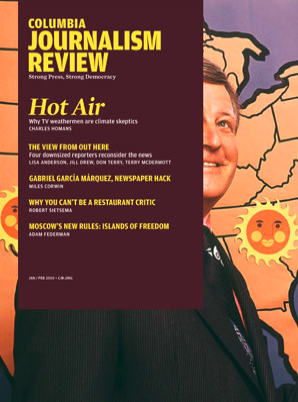It’s been nine months since my writing partner, Leah Greenstein, and I created Food Ethics and our controversial Food Blog Code of Ethics. In those months, much has happened here in the world of online food writing and criticism. The Federal Trade Commission has made it punishable by law for big (and little) companies to give money and gifts to bloggers without being transparent about it. One blog offers badges to denote a commitment to honesty and integrity. Blogs that once skirted the issue of freebies and comps, now openly state their affiliations, biases, and disclose freebies.
But when Leah and I first decided to write our statement of purpose nine months ago—for the sake of being clear on what we stood for in online writing—the topic of ethics in the blogosphere was something that was whispered between online writers. Many had opinions, but few were willing to publish their thoughts on the matter. So, when Leah and I decided it was time we write out our five-point manifesto on food blog ethics, our words and point of view caused a lot of controversy. We were shocked at how many people got engaged (and enraged) and suddenly everyone was talking about ethics. In a time when most people were interested in new iPhone apps and the birth of Twitter, we were ecstatic that we were surrounded by people arguing about philosophy. Getting people to think about the effect of their words before they hit PUBLISH was our goal.
So it was with great pleasure that Leah and I discovered Food Ethics was mentioned by Robert Seitsema, the author and food critic for the Village Voice in his comprehensive Columbia Journalism Review article, “Everyone Eats…But that doesn’t make you a restaurant critic”. In it, he masterfully charts the history of restaurant reviewing in the United States since the 1970’s and the effect of a handful of people on food writing.
Continue to Read More about Food Blog Ethics in Columbia Journalism Review »

